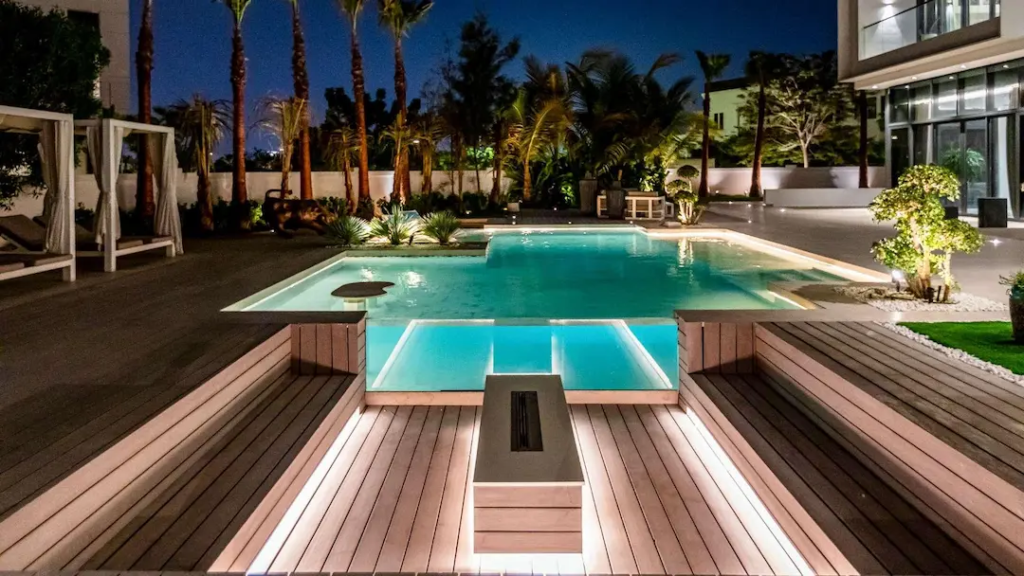The Seasonal Demand for Holiday Homes in Dubai: A New Perspective
Dubai’s holiday home market has become a significant contributor to the city’s vibrant tourism and real estate sectors. With a year-round influx of tourists, the seasonal demand for holiday homes fluctuates with the changing seasons, creating a cyclical rhythm that both homeowners and investors need to understand to optimize their rental income. In this article, we’ll delve into how different seasons impact the holiday home market in Dubai, and how owners can take advantage of these trends. This piece will explore lesser-discussed factors and offer fresh insights into the seasonal dynamics of Dubai’s holiday home sector.
Understanding Dubai’s Climate Impact on Holiday Home Demand
Dubai’s climate is one of the most significant factors influencing the different seasonal demand for holiday homes throughout the year. Tourists from colder climates flock to Dubai for its warmth, particularly during the winter months (November to March). During this period, the weather is mild, with temperatures ranging between 20°C to 30°C, making it ideal for outdoor activities, beach holidays, and luxury getaways. This “high season” is when holiday homes experience their peak demand, with occupancy rates reaching as high as 90% in popular areas like Palm Jumeirah, Downtown Dubai, and Dubai Marina.
However, summer, from June to September, presents a different challenge. With scorching temperatures that can exceed 45°C, the demand for holiday homes tends to dip. But interestingly, this season still holds hidden opportunities. Increasingly, savvy tourists from countries with equally extreme summers, such as those in the GCC, look for luxurious indoor experiences in Dubai, especially at properties with high-end amenities like private pools, indoor entertainment, and proximity to air-conditioned shopping malls and indoor leisure activities.
Festivals and Events: Boosting the “Shoulder Season”
While the winter season clearly dominates, the lesser-discussed “shoulder season” (April-May, October-November) is gaining traction, thanks to Dubai’s festival and event calendar. Dubai hosts numerous global events such as Expo 2020 (now Expo City Dubai), the Dubai Shopping Festival, Art Dubai, and international concerts, which attract short-term visitors. Property owners can capitalize on these periods by adjusting their rental strategies, focusing on shorter, event-specific stays rather than long-term bookings.
Moreover, the Dubai Summer Surprises, a city-wide shopping festival, brings in shoppers and families looking for extended stays at holiday homes. Properties near major shopping centers, such as Mall of the Emirates and Dubai Mall, tend to be in high demand during this period.
Sports Tourism: A Growing Opportunity in Low Season
An emerging trend in the holiday home market during Dubai’s low season is sports tourism. Dubai is home to numerous world-class sporting events, such as the Dubai Tennis Championships and Dubai Desert Classic (golf), and more tourists are traveling to the city to partake in or attend these events. While many associate summer with a decline in tourism, sports enthusiasts prefer extended stays during these events, as the focus shifts from traditional holidaymaking to participation in activities like golf, tennis, or watersports.
Holiday homes near golf courses, sports complexes, or marinas, particularly in areas like Jumeirah Golf Estates and Dubai Sports City, see a spike in demand during these periods, defying the typical low-season trends.
Business Tourism and the Extended Stay Phenomenon
Dubai has also become a global hub for business tourism, with the World Trade Centre, Dubai Financial Centre, and various other districts attracting professionals from all over the world. The demand for holiday homes isn’t just restricted to tourists anymore; business travelers and professionals often seek flexible, short-term rentals for extended stays.
These “extended stay” rentals are a growing niche within Dubai’s holiday home market, particularly during international exhibitions, conferences, and trade fairs. Areas like Business Bay, Downtown Dubai, and JLT attract professionals who prefer the comfort and flexibility of a holiday home over traditional hotel stays. These homes offer privacy, larger living spaces, and the convenience of being close to key business hubs, a value proposition that many business travelers appreciate.
Adapting Marketing Strategies by Season
Holiday homeowners and property managers in Dubai must tailor their marketing strategies to reflect seasonal changes. In the winter months, the focus should be on attracting traditional tourists—families, honeymooners, and luxury travelers—who are looking for a quintessential Dubai experience: beaches, desert safaris, and cultural landmarks.
During the low summer season, however, marketing needs to shift towards promoting the benefits of indoor amenities and targeting regional tourists who are more accustomed to the heat. Highlighting proximity to indoor attractions such as Ski Dubai, Dubai Aquarium, and IMG Worlds of Adventure can help draw interest from families seeking summer getaways that offer relief from the heat.
Additionally, property managers should explore promoting “staycation” offers for local UAE residents. With the rise of remote work, many locals are seeking holiday homes for weekend getaways within the country, allowing them to escape the daily routine without traveling abroad. Attractive discounts and promotions during this period can help increase occupancy.

Seasonal Pricing Models
Effective pricing strategies are key to optimizing returns across Seasonal demand for holiday homes changing. Dynamic pricing, which adjusts rates based on demand, is increasingly being adopted by holiday home operators in Dubai. During the high season, rental prices naturally peak, with owners commanding premium rates. However, savvy investors are increasingly using flexible pricing strategies during the shoulder and low seasons to maintain steady occupancy.
For example, offering discounted weekly or monthly rates during the low summer months can help secure longer-term bookings from tourists or business travelers, ensuring a more consistent income stream. Flexible cancellation policies and value-added offers, such as free airport transfers or complimentary cleaning services, can also enhance the appeal of holiday homes during slower periods.
Year-Round Opportunity
Despite its seasonal fluctuations, Dubai’s holiday home market offers year-round opportunities for investors and homeowners. Understanding the nuances of tourist behavior, shifting trends in business and sports tourism, and the city’s vibrant event calendar can help holiday home operators optimize their offerings in every season.
Dubai’s appeal as a global destination continues to grow, and with the right strategies in place, holiday home owners can ensure high returns and maximize occupancy rates, no matter the time of year. The key lies in adapting to the unique demands of each season while taking advantage of emerging trends that might not have been previously explored.
Book your holiday homes in Dubai from Savis Vacation Homes or Airbnb

